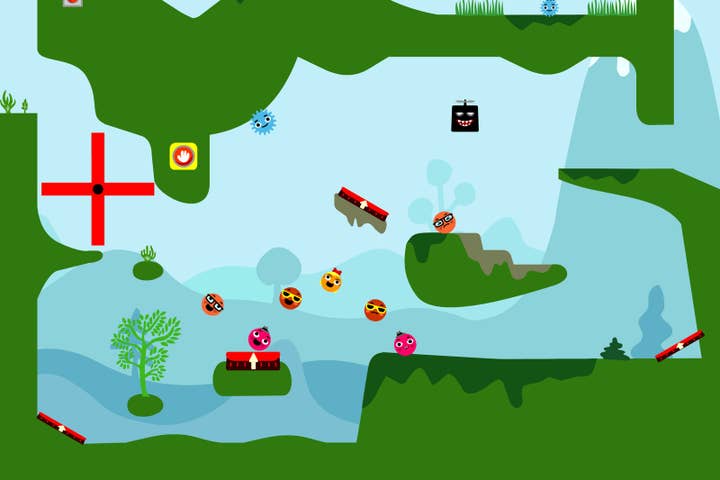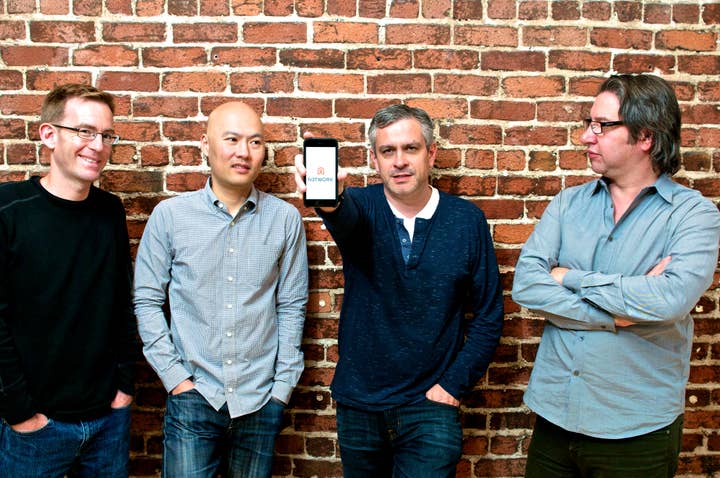Ngmoco founders return to games
"It's not like people don't want to spend money"
Just when he thought he was out, they pull him back in. You probably remember Neil Young, Alan Yu and Bob Stevenson as the team that founded ngmoco before selling it to DeNA and then exiting the games industry.
Well it turns out they missed it, and now they're shifting the focus of their latest company, N3twork, from entertainment software to games. Young explains to GamesIndustry.biz how the team's experience in both Western and Japanese markets will give N3twork the edge when it comes to the competitive mobile marketplace.
"We think that we have a pretty unique resume," says Young in his San Francisco office.
"The experience of the Japanese market is really relevant, it is not some strange archipelago where things develop completely weirdly"
"Obviously we made console games, we made a lot of console games and PC games and we moved to mobile and we taught ourselves free-to-play and really had built ourselves into a leading free-to-play iOS company, then got acquired by a Japanese company and actually enjoyed it. Didn't just go 'thanks very much for the cheque, we'll see you later!'
"The lessons learned in that Japanese market, the experience of the Japanese market is really relevant, it is not some strange archipelago where things develop completely weirdly. There are humans that live there. And the humans are really similar, biologically and often psychologically to the humans in the West."
And so N3twork is ready to redefine mobile quality inspired by a range of games, from Candy Crush and Clash of Clans to Puzzles & Dragons and Thomas is Alone. It's already at work on one title (he won't even hint at the genre) with another planned for later this year and it's busy recruiting to build its games team.
"The games we want to build will be games that you would play multiple times in a day. They would be games that if you wanted to you could play for a long time, or you could play for a relatively short time, there'll be games that are really built for the device, first and foremost, that will respect the format and the function of the device."

In fact, if you want to rile Young, talk to him about the trend for developers to say they're making "console quality" games for mobile. He's adamant that this approach is flawed from the very beginning.
"You often build the game from where you've come from and if where you've come from is console that's going to be your starting point and you go 'well that was a pretty good idea because we have to differentiate ourselves with graphics' and then you just reach the point where you realise that when are we going to be able to make a good business here? How are we going to pay people? How are we going to pay ourselves?
"And that's the point then when people panic. And then they try to put in things that will make that game economically or financially successful and the reality is you can't add those things. You have to build from the outset."
Young is also clear, from his experience watching Japanese mobile hits roll in billions in revenue, on the type of free-to-play model that's key to success. Make your players happy to spend money, and you don't have to trick them.
"The games we want to build will be games that you would play multiple times in a day"
It's not like people don't want to spend money, they want to spend money on things that they love and they want to be charged honestly. They don't want to be like 'I've run out of energy?' They want to feel like it's not monetisation based on they need to move forward, it's monetisation based 'I want to do this.' When you move from need based monetisation to want based monetisation you think about things differently as a user, you don't begrudge spending the money. I think in Japan they're much further along that curve."

